Who is a forensic expert and what does he do?
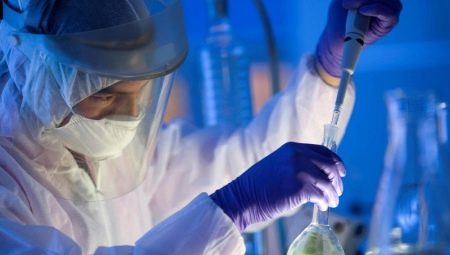
From time immemorial, human history has been faced with crimes, their disclosure by law enforcement agencies, justice, and punishment. Unfortunately, the percentage of crime even in the most advanced countries leaves much to be desired, which means that people will always be needed who can competently solve any case - find evidence and bring it to a fair conclusion.
One of these professions, which has existed for more than one century, is the profession of a forensic expert.
Peculiarities
This profession is universal. A forensic scientist must help solve crimes: together with the police, he must go to the place where the crime was committed, collect evidence, deal with their description and analysis in the laboratory, and subsequently make a competent conclusion. A true professional in this difficult profession must possess not only theoretical and practical skills, but also with high moral and stable mental qualities. In addition, he needs to have the logic of thinking. Much depends on the work of this person during the investigation, therefore, the choice of your future path in forensic science must be approached very responsibly and thoughtfully.
The forensic expert's specialty is more general, as it combines the work of an investigator, scientist, policeman, doctor and so on... So, to master the narrower profession of a forensic medical expert, it will be necessary to obtain a higher education in the field of medicine.A broad outlook will only be a plus in this area: to successfully investigate a crime, you sometimes have to resort to knowledge of psychology, history, or even art.
In any case, this specialty will be of interest to all lovers of law, detectives and investigations.
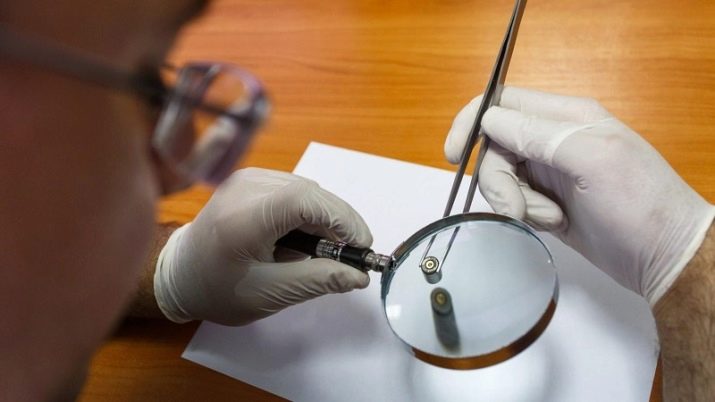
A responsibility
The success or failure of a crime investigation depends on the work of a forensic expert. This means that such a person will require a systematic approach to his work, composure and endurance, as well as disinterestedness and independence in his decisions.
TO personal qualities criminologist include stress resistance, courage, accuracy. A specialist in this profession must have a high level of IQ, a good memory, have an analytical mindset, be impartial and physically enduring, healthy. The fate of people can depend on the conclusions of a criminalist - the correctness of conclusions and a thorough examination can justify an innocent person or send to jail someone who is not initially suspected.
People with fragile nervous systems are unlikely to be able to remain calm when dealing with serious and terrible crimes related to murder, suicide, and numerous evidence of a different nature. That's why a forensic scientist must have strong nerves and endurance.
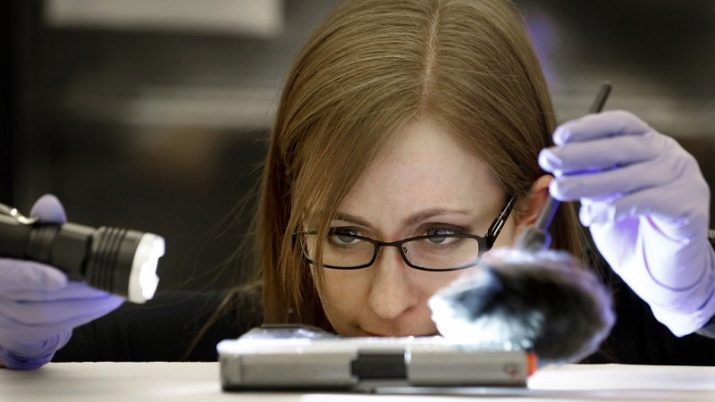
Responsibilities
A forensic specialist performs a set of actions to investigate crimes: from going to the scene of the crime, the initial collection of evidence, drawing up a protocol to carrying out various kinds of examinations and work with documentation. We can say that the criminologist is engaged in full fixation and detailed analysis of the crime committed. In addition, his responsibilities include the implementation of photo and video filming, as well as the ability to work with general and specialized programs on a personal computer.
The profession of a forensic scientist emerged two centuries ago, but in demand to this day. In addition, it does not stand still and requires specialists to constantly improve themselves: new technologies appear and develop, new methods and devices are created, in which the forensic scientist must be able to understand.
Narrower areas may exist within the framework of other professions, the most in demand of which are the following related specialties of a forensic scientist:
- chemist;
- psychiatrist;
- pathologist.
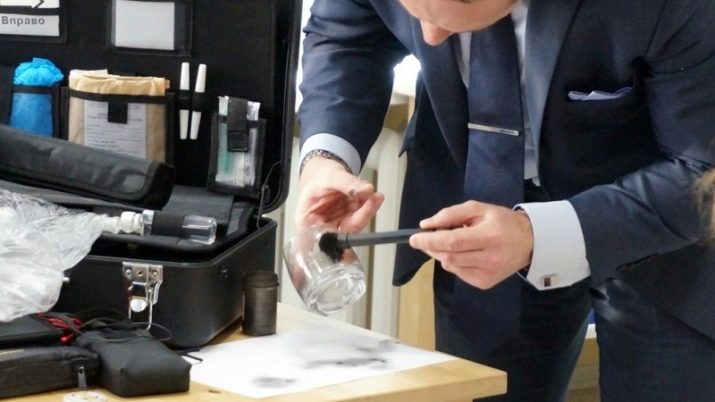
Knowledge and skills
The general knowledge that a forensic expert needs includes:
- theoretical foundations of forensic science and other legal disciplines;
- knowledge of forensic analysis techniques;
- fundamentals of the current legislation of the Russian Federation;
- knowledge of the features and algorithms of investigations;
- operating with new technologies in the field of collection and analysis of evidence.
The forensic scientist also should be able to conduct investigative experiments and make expert opinions. The main task of a forensic expert is to help the investigation in the investigation of a crime and to choose the only correct one from a variety of versions.
In addition, there are many types of examinations with which a forensic scientist must be able to operate:
- fingerprinting (examination of fingerprints);
- graphology (handwriting analysis);
- ballistics (examination of firearms);
- traceology (search and study of traces from the crime scene);
- portrait examination;
- phonoscopy (examination of speech and sound data).
Recently, in connection with the achievements of science, very such a narrow area of expertise as DNA research is becoming in demand. It makes it possible to clarify the picture of the incident on the basis of the left organic traces (saliva, blood, hair, and so on) and direct the investigation in the search for a criminal into a narrower and more evidential channel. If a forensic scientist has a medical degree, then he can work as a forensic medical examiner.
All criminologists must know the basics of history, economics, psychiatry, anatomy, because the course of an investigation can be unpredictable, which may require knowledge from the most unexpected areas.
We can say that this profession takes a person one step closer to the romantic images of their favorite detective heroes, for example, to the famous Sherlock Holmes or the eccentric Hercule Poirot.
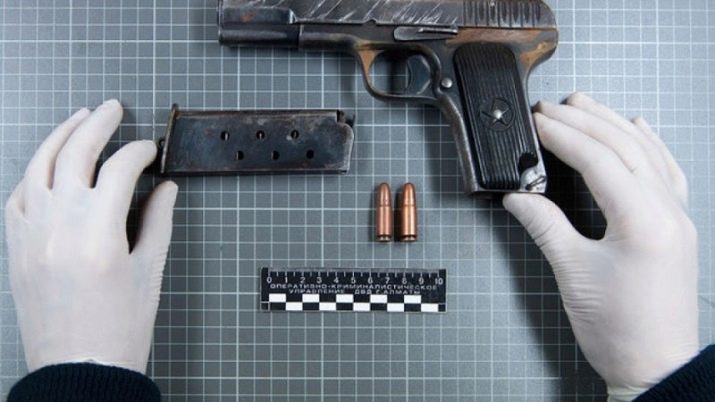
Education
There are several options for obtaining the specialty of a forensic expert in Russia. First of all, for this is the need to obtain a higher legal education. You can start your studies by enrolling in a law college, but then you still have to graduate from university in order to have a higher education in the specialty "Jurisprudence".
In our country, there are currently many higher educational institutions with law faculties. Among them are the following:
- Moscow City University of Management of the Government of Moscow;
- Kolomna Institute, Moscow State Machine-Building University;
- Russian Customs Academy;
- St. Petersburg State Polytechnic University (SPbSPU);
- MSTU them. N.E.Bauman;
- SSU named after N.G. Chernyshevsky;
- Perm State National Research University.
So, at the University. N.E.Bauman's training program is 5 years, there is an opportunity to enroll in budget places, and the cost of paid places will be 260 thousand rubles per year. At SSU named after N.G. Chernyshevsky, the cost of training is about 100 thousand rubles a year, but there is also a budgetary department.
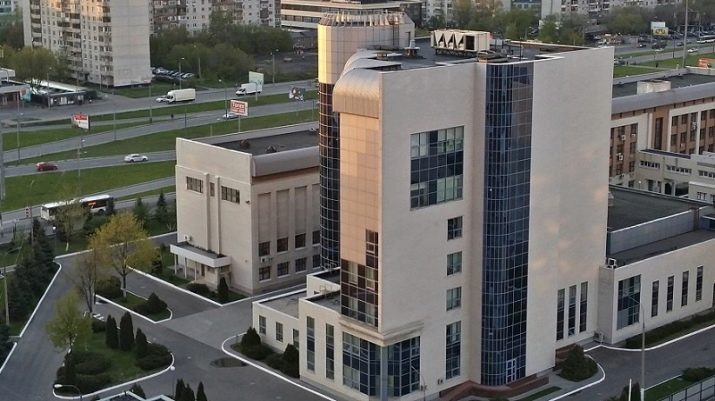
Despite a wide range of universities with a legal focus, the specialty "Forensic examination" can be mastered only in institutions belonging to the Ministry of Internal Affairs. There are such universities in Moscow, Saratov, Penza and other cities. Upon admission to these educational institutions, you will need not only to pass state exams, but also to obtain an opinion from the medical commission, as well as a certificate of mental health. And then to work in the organs of the Ministry of Internal Affairs, you must have a military ID on your hands.
To enter universities, you will need to pass exams in the USE format in such subjects: Russian language, history and social studies. The average USE score for admission to Moscow educational institutions starts from 80 points. In many universities, budgetary departments are provided, but there is the possibility of training at paid places. The cost per year varies from 80 to 170 thousand rubles (depending on the educational institution). The duration of full-time studies is 4 years for a bachelor's degree and 2 years for a master's degree, after which those who wish can enter graduate school and finish it in 2 years.
There is also an alternative way: to get higher education in legal, medical, chemical and other specialties, and then take retraining courses.
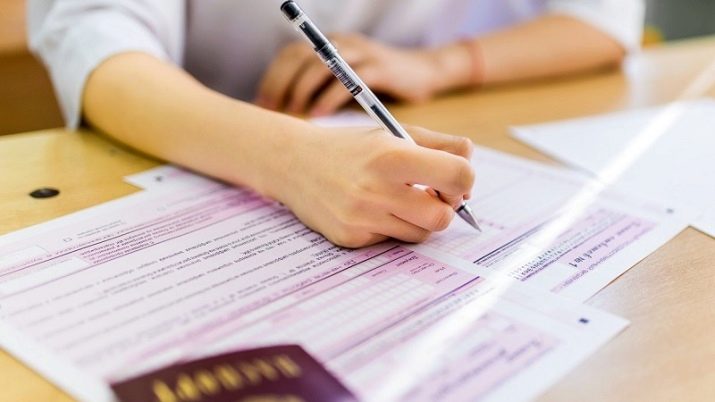
Recently, an opportunity has arisen passing courses remotely, for example, at the Russian Institute of Professional Education "IPO", the International Academy of Expertise and Assessment or the University "Synergy".
Distance learning not only helps to quickly, without leaving home, and relatively inexpensively to master the desired profession, but also offers internships in the investigating authorities, to do an internship before graduation. The timing of the course depends on the institution, but you can basically master the full program after 6 months.
A forensic expert can also improve their qualifications in other areas. Universities have organized retraining or advanced training programs for already established specialists. You can complete these courses, for example, at the Moscow State Technical University. N. E. Bauman, Academy of Foreign Economic Activity "Sphere", Institute for Advanced Studies in Humanitarian Education.
In this profession, it is not so much theoretical knowledge that is important as practice. Only with experience can a person reach certain heights in this profession, therefore, when choosing an educational institution, it is important to pay attention to the educational program, where a sufficient number of hours will be devoted to passing practical classes.
It is important to note that educational institutions equipped with technical means, laboratories, apparatus for training future experts will be a priority for applicants.
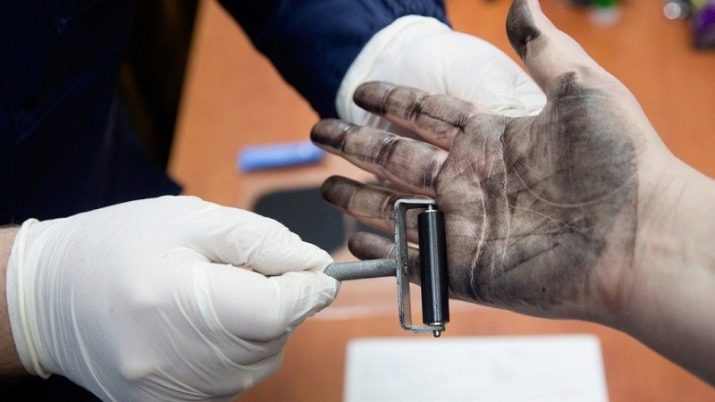
Where does it work?
The advantage of the profession is a large space for further employment after graduation... A forensic expert can work in the investigative bodies of the police or prosecutor's office, and in the criminalistics departments of the Ministry of Internal Affairs, as well as in private laboratories. The average salary of a forensic scientist and forensic scientist in the Russian Federation ranges from 30 to 60 thousand rubles at the initial stage. In the Moscow region, this specialty is one of the highest paid professions.
There is an opportunity to move up the career ladderwhere the salary for executive positions starts from 70 thousand rubles. Bonuses and rewards are assumed for successful investigations.
Such a profession is in demand in our country and guarantees stability and the possibility of career advancement.
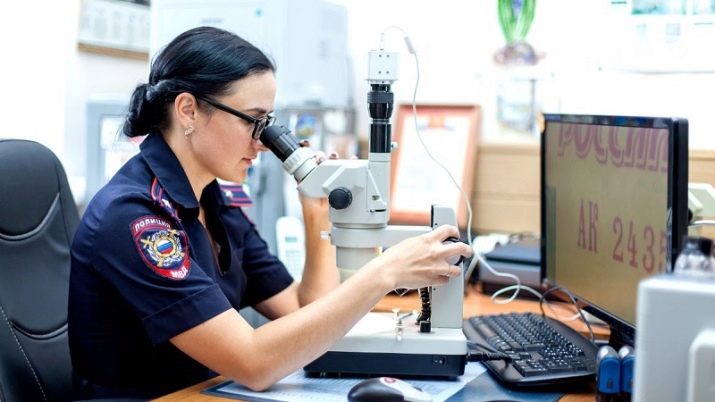
Pros and cons of the profession
The disadvantages of the profession are:
- irregular work schedule;
- nervous and stressful work;
- increased responsibility for decisions made;
- difficult conditions: you have to constantly work with evidence, victims, in a stressful mode;
- threats or psychological pressure from criminals.
The forensic expert may be required to travel to the crime scene on his day off, work in freezing or hot weather. His activity may be accompanied by unpleasant odors or an unpleasant picture of a perfect malicious act.
The pluses of the profession of a forensic scientist include:
- high profit payment;
- social package and other privileges;
- work in government structures (stability and the prospect of contributions to the Pension Fund);
- the opportunity to start your own business and become a private entrepreneur;
- prestige and respect (the whole team listens to the expert, expects the results of his work);
- the opportunity to master narrower specialties.
By becoming a forensic expert, do not forget about the responsibility that falls on the specialist. However, it should be borne in mind that this profession is quite interesting, it involves the possibility of career growth, development, a decent wage. All this makes her one of the most promising modern vacancies on the Russian market.









